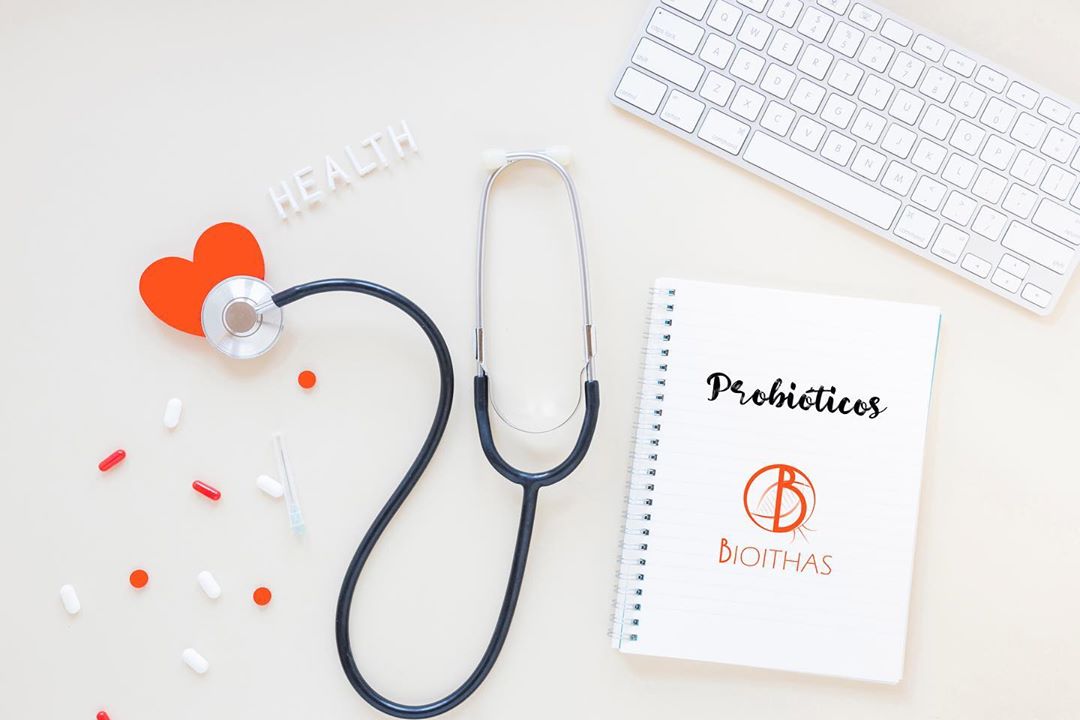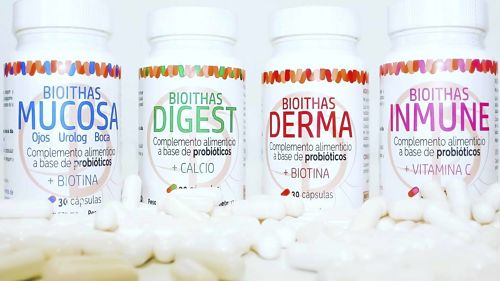Latest developments on the biotechnological sector: a conversation with Laura Navarro

Bioithas is an Academic Research Institute located in the Alicante Science Park. Their team focuses on the obtention of unique biomarkers results, which provide differentiating value to each project. Their main goal is to improve people’s lives and health through scientific investigation. Thanks to their methodical research studies, Bioithas has become an important reference in the human microbiota field. Recently, their continuous investigations allowed them to start commercializing four lines of probiotics products.
We wanted to know more about this company and its key success factors. For that reason, we decided to meet Laura Navarro, Chief Operating Officer at Bioithas. Here is the result of that interview.

Even though Bioithas is such a young company, you’ve achieved significant success and recognition in your field. So, let’s start from the beginning: how did you come up with this idea?
In 2015, Vicente Navarro, who is now CEO and Scientific Director of Bioithas, finalized two important research projects about probiotics in cutaneous pathology. All this resulted in two patents. At that point, some labs contacted us to plan more development studies so, at that point, we realized that Biotihas needed to be established as a company. We also started promoting our investigations with the aim of increase the number of products and patents we had.
We think it is fascinating how you’ve taken that leap from researching to commercializing the results of your studies. At that time, you decided to rely on Alicante Science Park. Can you let us know how important it was to join them?
We think it was fundamental. In our opinion, the business ecosystem here is vital for companies that are similar to Bioithas. Especially for companies with technical profiles. Alicante Science Park gives us the necessary tools and support for generating new business areas that we can not develop before. With their services and help, it is easier to improve.
Furthermore, we know you have been chosen as the best start-up on the Valencian Science Parks Network and, also, you’ve got the seal of “Young innovative company” from the Valencian Institute of Business Competitiveness. Therefore, how do you think it’s the R&D situation of the Valencian Community?
We do consider that the Valencian Community stands for innovation (within its possibilities, of course). We know several projects that have been funded by the Valencian Innovation Agency. In one of them, Vicente participates himself as an investigator for the Foundation for the Promotion of Health and Biomedical Research of Valencia Region.
Specifically talking about your industry, which innovation plan of action is the most common? What are the prospects?
Our main investigation lines have a common link: human microbiota. Numerous studies have already found a connection between microbiota and health and illness.
Moreover, we realized the necessity of finding personalized treatments for those pathologies in which a standard therapy may not work correctly for all patients. All of this has determined the importance of searching for specific solutions for every case.
From this emerges the interest in illness biomarkers and personalized treatments investigation for technological companies, sanitary institutions… This situation has become more evident as a result of the COVID-19 outbreak when having quick diagnosis tests have been crucial to slow down this pandemic.
We use all this knowledge to study two questions: On the one hand, we research diagnosis biomarkers and, on the other hand, probiotic products. All of these act on microbiota and, thanks to that, patient health improves.
Our prospects are optimistic. What we do responds to the necessity to find a real solution. This situation is becoming crucial beyond companies from our sector. More and more grants and public funding programmes are destined for this kind of investigation
We realized the necessity of finding personalized treatments for those pathologies in which a standard therapy may not work correctly for all patients. All of this has determined the importance of searching for specific solutions for every case. From this emerges the interest in illness biomarkers and personalized treatments investigation for technological companies, sanitary institutions.
Considering all you’ve told us about the existence of this necessity, what have been the main R&D projects you’ve developed in Bioithas?
Our main R&D project is the development of biomarkers for multiple sclerosis (MS) and cancer. On the other hand, we’ve focused on studying patented probiotics mixes for specific pathologies.
How has the European Commission supported the development of these projects?
The European Commission has been key to create ScleroTest, our project about MS diagnostics kits. At this time, we were granted with SME Instrument Phase 1. Thanks to that, we were able to develop a Feasibility Study in which we realized how that kit could become real: it can be included in the clinical routine and achieve a massive impact on patients, neurologists, and healthcare systems.
It’s been a real pleasure for us to work with Bioithas on that first step and witness your innovative project grow. In your opinion, what role do you think Evolution has played in your funding strategy?
We had the chance of working with Evolution to request SME Instrument Phase 1, and it was a complete success. Nowadays we’re trying to achieve Phase 2 (now EIC Accelerator). In that way, we will be able to validate our MS kit, Sclerotest, in a larger cohort of patients.
Talking about your probiotic products, you’ve reached the market with the sale of your first products. You’ve achieved to take that step that many start-ups dream of, especially in the field of research. How has this process been for you?
We made that leap into the market with our probiotic products. There are four of them: Bioithas Digest, Bioithas Derma, Bioithas Immune, and Bioithas Mucosas.

All of this has been possible thanks to all that knowledge we got through various clinical trials in humans. For those trials, we mixed different probiotics destined to treat diverse pathologies, and we were able to develop these products with great scientific endorsement.
Moreover, being published in some of the most significant indexed magazines was tremendous support at this point.
For our part, we would like to congratulate you on this successful pathway. There’s just one question left: which will be your next steps?
Our next step is to consolidate ourselves on the market as a high-quality probiotic brand. We don’t want to lose the fact that we are a research company. Because of that, we must continue our investigation to support and endorse our products.
On the other hand, we want to finish developing our two patented predictive diagnosis biomarkers. It would be great to grow up in the biomarkers market.
Thank you very much, Laura, for talking to us about Bioithas, which is a complete reference in the national and international biotechnological field. We wish you the best of luck in your promising future and we hope to continue collaborating with you to help you reach all your goals.

